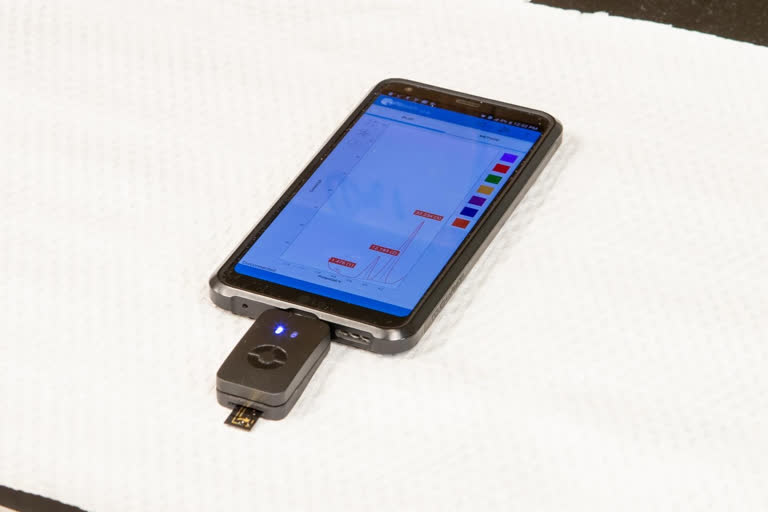A team of Canadian researchers has created a prototype for a hand-held device to measure a biomarker for cancer like a blood sugar monitor, paving the way for home-based cancer monitoring and improving access to diagnostic testing.
The device could be used in a medical clinic or at home, all without lab work, greatly simplifying the process for testing blood for cancer's signature.
"This is another step toward truly personalized medicine. This would make monitoring much more accessible and cut down on the number of times patients need to leave home to provide blood samples," said Leyla Soleymani, a biomedical engineer and Canada Research Chair in Miniaturised Biomedical Devices. This is how it works.
A user would mix a droplet of blood in a vial of reactive liquid, then place the mixture onto a strip and insert it into a reader. In minutes, the device would measure an antigen that indicates the degree to which cancer is present.
The prototype has been designed to monitor prostate specific antigen (PSA) and the technology can readily be adapted to measure other markers, depending on the form of cancer or other chronic disease, said the study appeared in the journal Angewandte Chemie.
"Once commercialized, this device will be a paradigm shift for cancer diagnosis and prognosis," said Brock's Feng Li, an associate professor of chemistry who leads a bioanalytical chemistry lab.
"Since this device is a lot more accessible and user-friendly than conventional technologies, patients will be more willing to use it, which can improve clinical outcomes and save lives," Li added.
The invention, the authors said, will need to be tested more broadly before earning the regulatory approvals that would permit commercial manufacturing.
This Hand-Held Device Can Read Cancer Biomarker Like Blood Sugar
The new prototype hand-held device to measure the biomarker for cancer like a blood sugar monitor has been created that will simplify the process for testing blood for cancer's signature.

A team of Canadian researchers has created a prototype for a hand-held device to measure a biomarker for cancer like a blood sugar monitor, paving the way for home-based cancer monitoring and improving access to diagnostic testing.
The device could be used in a medical clinic or at home, all without lab work, greatly simplifying the process for testing blood for cancer's signature.
"This is another step toward truly personalized medicine. This would make monitoring much more accessible and cut down on the number of times patients need to leave home to provide blood samples," said Leyla Soleymani, a biomedical engineer and Canada Research Chair in Miniaturised Biomedical Devices. This is how it works.
A user would mix a droplet of blood in a vial of reactive liquid, then place the mixture onto a strip and insert it into a reader. In minutes, the device would measure an antigen that indicates the degree to which cancer is present.
The prototype has been designed to monitor prostate specific antigen (PSA) and the technology can readily be adapted to measure other markers, depending on the form of cancer or other chronic disease, said the study appeared in the journal Angewandte Chemie.
"Once commercialized, this device will be a paradigm shift for cancer diagnosis and prognosis," said Brock's Feng Li, an associate professor of chemistry who leads a bioanalytical chemistry lab.
"Since this device is a lot more accessible and user-friendly than conventional technologies, patients will be more willing to use it, which can improve clinical outcomes and save lives," Li added.
The invention, the authors said, will need to be tested more broadly before earning the regulatory approvals that would permit commercial manufacturing.


